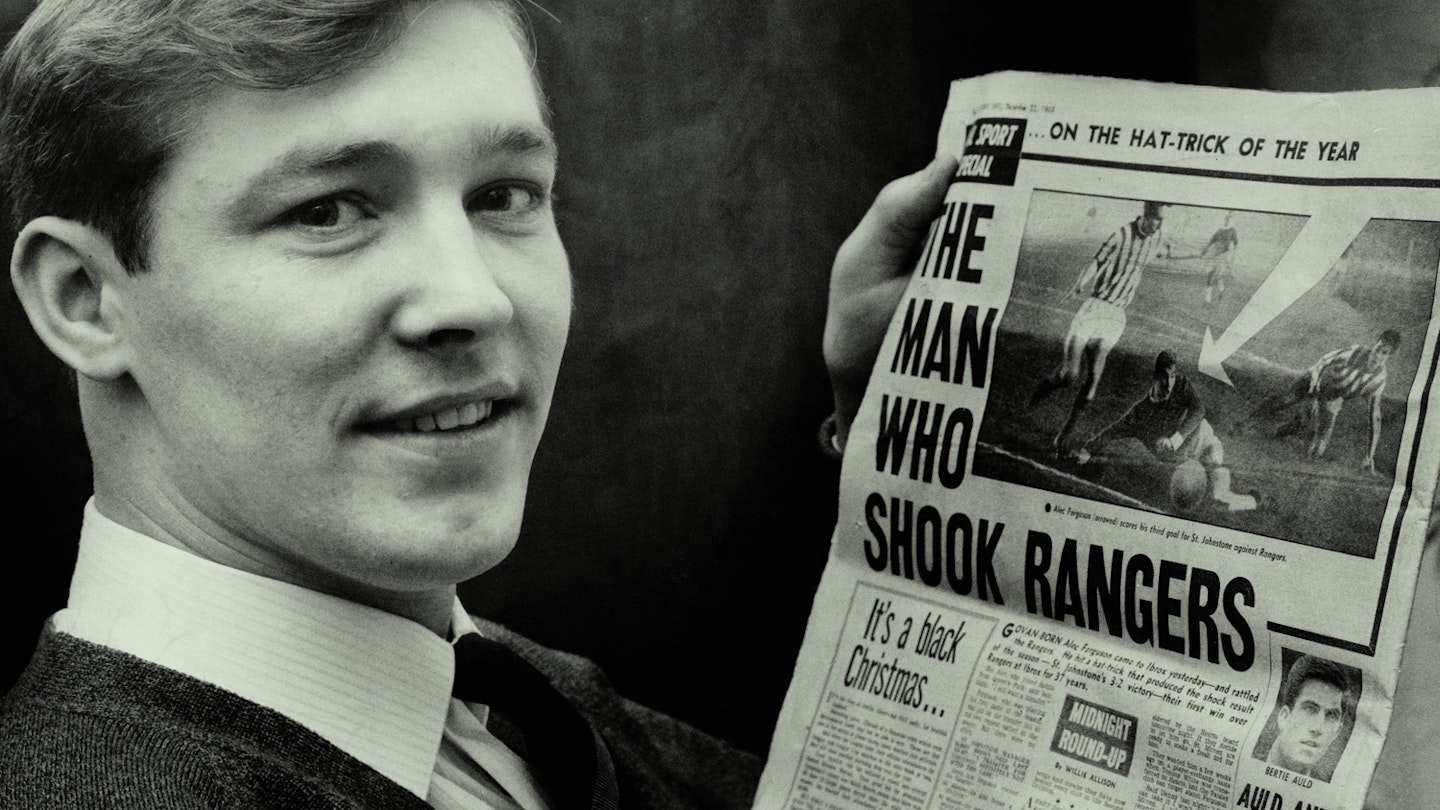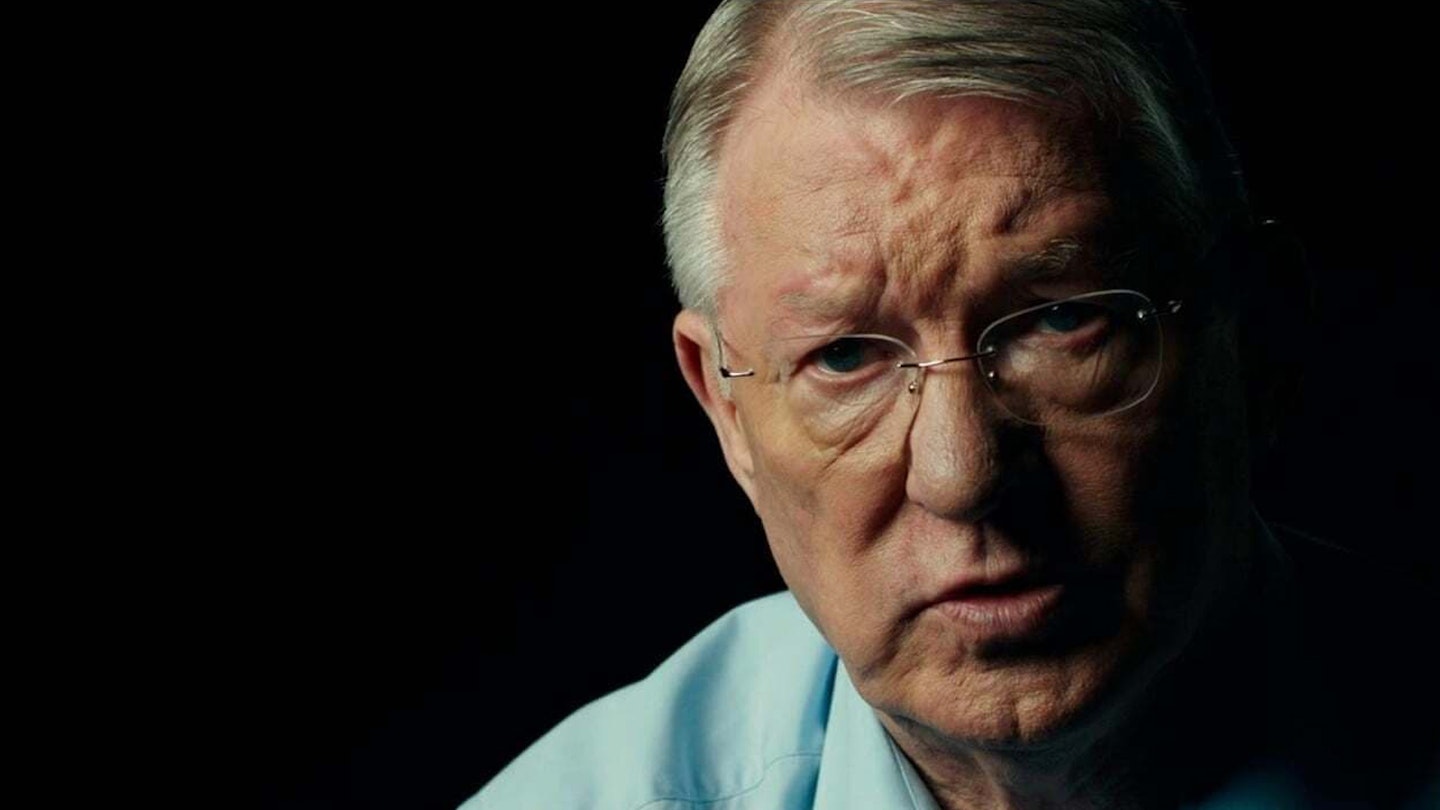The Alex Ferguson of Never Give In is a long way from the Alex Ferguson whose screaming and shouting at players right in their face became known as ‘the hairdryer treatment’. Directed by his son Jason, the intimate film uses his recovery from a brain haemorrhage suffered in 2018 as a through-line, a reflective Ferguson recalling his footballing times with the vulnerability of a wounded warrior.
The film takes a conventional route, intercutting the day of his stroke and subsequent aftermath with his journey from the tough working-class Govan district of Glasgow, to his footballing days at Rangers, to his stellar management career at Aberdeen and Manchester United. The early days are vividly brought to life by archival footage as Ferguson recounts his apprenticeship as a tool-maker, part-time footballer in the Scottish leagues, his hell-raising years, and his rocky relationship with his father that led to him booking a ticket to emigrate to Canada – an idea that was scuppered when he became the first footballer to score a hat-trick at Ibrox Stadium.

The film doesn’t shy away from the tougher moments of his early days. When he joined boyhood club Rangers, the experience was soured by being blamed for a goal conceded in the Scottish cup final and discrimination by the protestant club over his marriage to his Catholic fiancée Cathy. Asked by the chairman why they were not married in a chapel, Ferguson recalls, “I should have told him to fuck off.”
_Never Give In_ doesn’t really do anything structurally or stylistically innovative, but it has a close-up and personal feel.
Picking up on his managerial career — Ferguson freely admits his success at Aberdeen was fuelled by his hatred of Rangers — the film obviously spends the lion’s share of its time on Manchester United. It documents his early lack of success at United — he received “go back to fucking Scotland” phone calls — but lacks the testimony to describe his more extreme behaviour. (“I don’t think there’s anything wrong in losing your temper if it’s for the right reasons,” he simply observes.)
If there’s only a smattering of talking heads — Ryan Giggs, who saw Ferguson as a father figure; Eric Cantona, who Ferguson granted the space to be himself — perhaps the most interesting section focuses on his dropping of out-of-form goalkeeper Jim Leighton for the FA Cup Final, resulting in the pair never speaking again. The film unsurprisingly ends on the famous comeback in the 1999 UEFA Champions League Final against Bayern Munich, the footage focusing on the increasingly red-faced Ferguson rather than the play. Even for the neutral, the victory-from-the-jaws-of-defeat ending is still euphoric.
Sir Alex Ferguson: Never Give In doesn’t really do anything structurally or stylistically innovative, but given it’s a family affair, it has a close-up and personal feel. Ferguson uses the platform to acknowledge the struggles of his wife Cathy, but it’s at its most moving as a man not prone to looking back revisits highs and lows that could have easily been lost to him.
